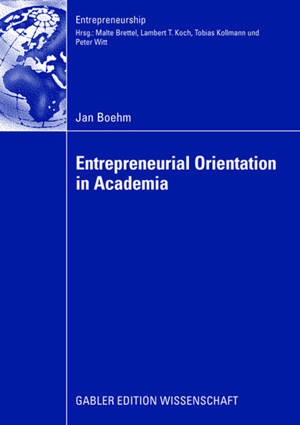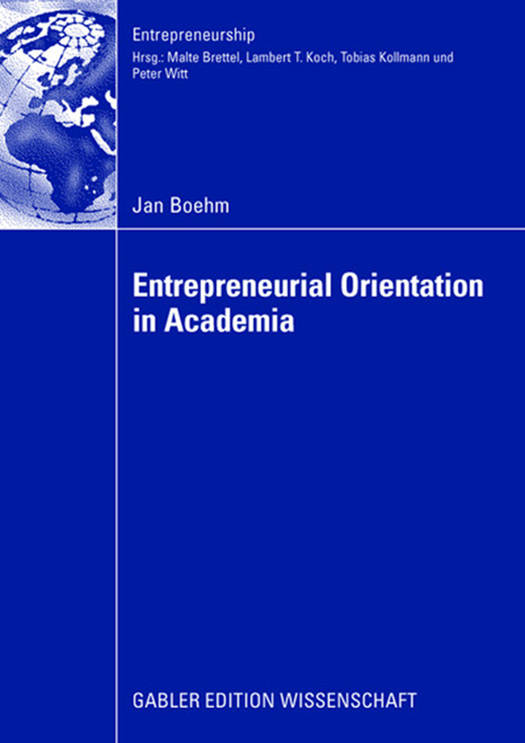
- Afhalen na 1 uur in een winkel met voorraad
- Gratis thuislevering in België vanaf € 30
- Ruim aanbod met 7 miljoen producten
- Afhalen na 1 uur in een winkel met voorraad
- Gratis thuislevering in België vanaf € 30
- Ruim aanbod met 7 miljoen producten
Zoeken
€ 52,95
+ 105 punten
Omschrijving
Entrepreneurial firms and new venture creation are important drivers for economic growth. Hence, emphasis is put on the question how to adequately stimulate and s- port new business creation. The corresponding discussion has not excluded academic organisations such as universities - quite the contrary. In Germany, this discussion was intensified by changes in the Employee Invention Act (Arbeitnehmererfinder- setz), which now obliges researchers to report an invention to the sponsoring univ- sity, which in return has to decide how the invention it will be exploited. Sub- quently, inventions and patents have emerged as a attractive economic resource for universities. This explains why university administrators have great interest in und- standing how the creative and entrepreneurial orientation of researchers or entire - search teams can be controlled, steered, and enhanced. The discussion we are having in Germany today began in the US more than 20 years ago. With the Bayh-Dole-Act of 1980, a shift in the allocation of property took place similar to the introduction of the Employee Invention Act in Germany today. In ad- tion, the notion of entrepreneurial activities in the context of research organisations has a long-lasting tradition in the US, and the current German system could learn a lot from understanding these developments. This has been the motive for Jan Boehm to look deeper into the field of entrepren- rial orientation in academia, in particular in the US.
Specificaties
Betrokkenen
- Auteur(s):
- Uitgeverij:
Inhoud
- Aantal bladzijden:
- 237
- Taal:
- Duits
- Reeks:
Eigenschappen
- Productcode (EAN):
- 9783835009332
- Verschijningsdatum:
- 24/04/2008
- Uitvoering:
- Paperback
- Formaat:
- Trade paperback (VS)
- Afmetingen:
- 148 mm x 210 mm
- Gewicht:
- 340 g

Alleen bij Standaard Boekhandel
+ 105 punten op je klantenkaart van Standaard Boekhandel
Beoordelingen
We publiceren alleen reviews die voldoen aan de voorwaarden voor reviews. Bekijk onze voorwaarden voor reviews.











